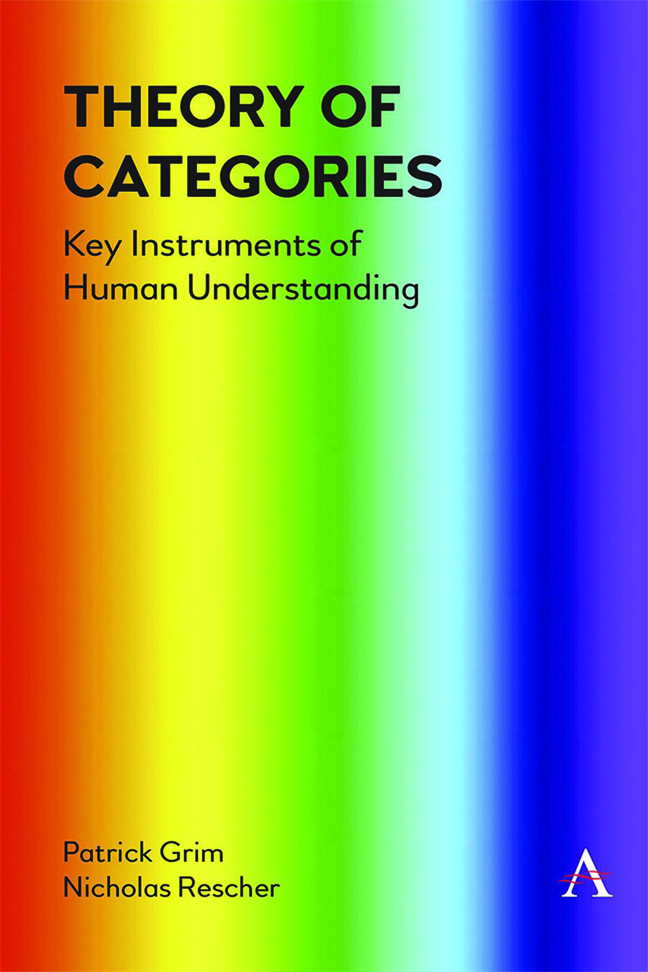1 - The Nature of Categories
Published online by Cambridge University Press: 29 February 2024
Summary
Reality is a manifold of variation; the variety, diversity, and complexity the world affords is virtually endless: individually and collectively, its constituents exhibit an ever-proliferating array of features and characteristics. But the human mind, though also vastly complex, cannot keep in step. Its focus has to be not in the endless detail of real individuality, but in its patterns and regularities. The world deals in the variant detail of specifics, while the mind has little choice but to address this via types and in kinds. Reality proliferates, the mind categorizes, in effect endeavoring to deal with an analog Reality by digital means.
Categorization as a Conceptual Necessity
To be intelligibly and usefully managed, information must be systematized. To this end categories are an indispensable resource. Categories provide for the conceptual basis of generalization and identification. Categorization is an essential and unavoidable instrumentality for conceptually navigating a world – indeed for being able to conceptualize a world that needs to be navigated.
Categories map out the conceptual structure by whose means we map out the domain of our knowledge. They provide for the table of contents and the index by whose means our knowledge is organized and made accessible. They render our otherwise incoherent mass of information cognitively manageable and provide an informatively convenient framework for our cognition about the realms of the actual and the possible.
All cognition beyond a dull mental hum demands categorization. All experience beyond passive reception of a perceptual blast demands categorization. All action beyond flailing – and perhaps even that – requires the guidance of categorization. Categories are essential in any cognition, any experience, and any action as we know them, and indeed in any cognition, experience, or action for beings to any degree like us. Successful action in the world demands information about the world, and information as we know it is conceptualized in terms of categories. As creatures that must operate by means of information, we must categorize.
There is a long philosophical tradition in which the emphasis is on a search for the highest or most general categories. Suppose that someone says, with sublime vagueness, “I am thinking of something.” What would this be? And suppose that we can get answers to just ten questions. What should we ask? We would be well advised to adopt something like the following list:
Is it concrete or abstract?
Is it unique or does it have many instances?
- Type
- Chapter
- Information
- Theory of CategoriesKey Instruments of Human Understanding, pp. 1 - 32Publisher: Anthem PressPrint publication year: 2023

